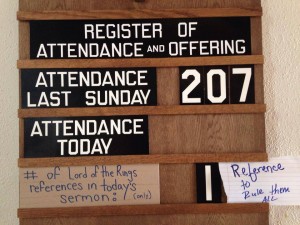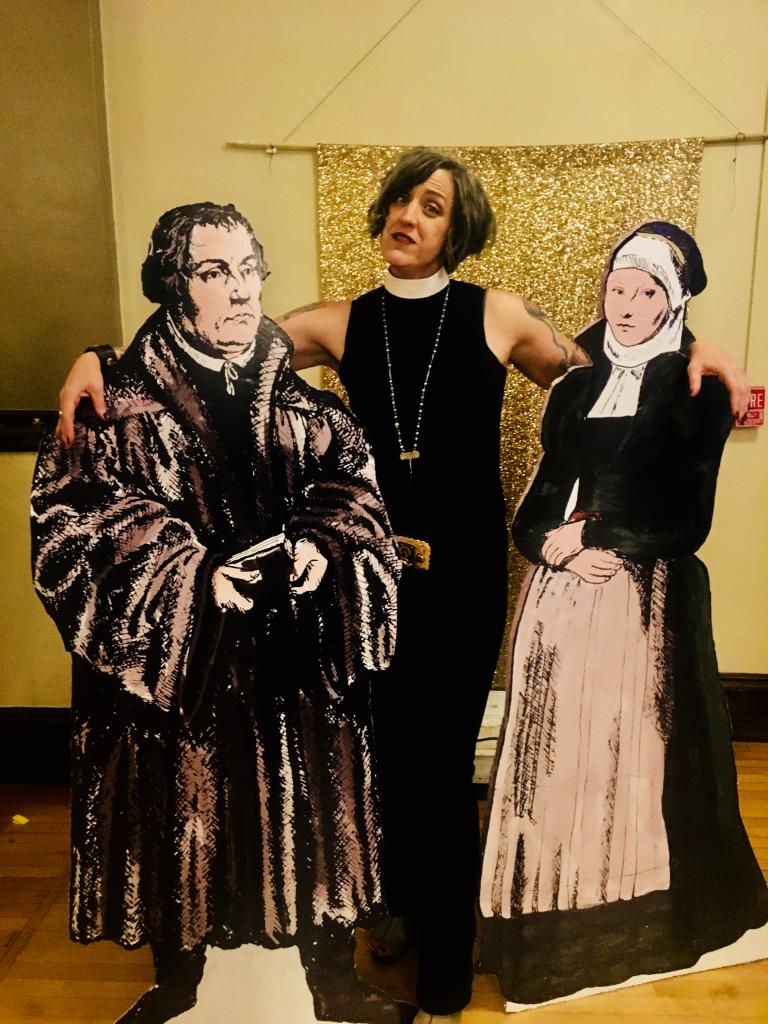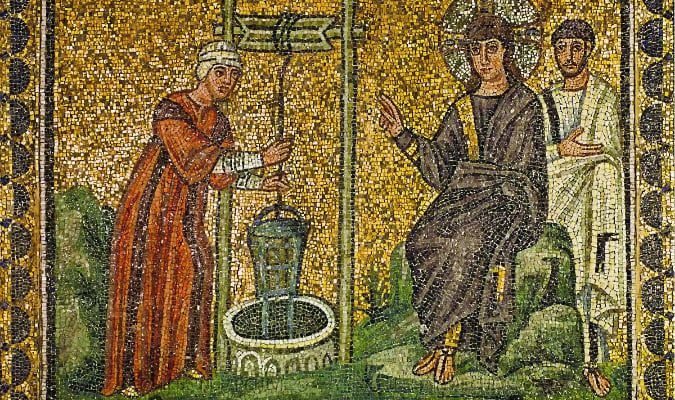Click here to listen along. (sermons are spoken events!)

You know what classes I really hated in seminary? Pastoral care. Oh my gosh – way too touchy-feely for me. Role-playing and talking about feelings and lots of mushy language. It was awful.
Bible classes, Theology courses, preaching seminars I was fine with. But, Pastoral Care? No thank you.
I was sure the problem was that I just didn’t have a warm, pastoral, slightly co-dependent, come-to-me-and-I’ll–agree-with-you-that–all-your-problems-are-other-people’s-fault kind of personality, so I was sure I’d be horrible at pastoral care. But rather than look at the truth of that, I chose instead to be snarky and make fun of the pastoral care classes themselves.
I even considered not becoming a pastor at all because I was too cynical. I was sure that what I had to offer was simply not enough.
It’s obvious to me now that my dislike of pastoral care classes had everything to do with me wanting to avoid my own vulnerability and nothing to do with them being bad classes. For a long time in my life my MO was to protect myself from being hurt by appearing to be as tough and as strong as possible and never giving anyone an opportunity to see my weaknesses.
I feared that once I was in a parish, I, like the disciples in our Gospel text for today, would be tired from following Jesus and that then there would be like, 5,000 emotionally needy people and that I would have nothing to offer. Nothing but a few stale loaves and couple of my own emotionally damaged fish and that it would never be enough.
Which is why I was thinking about my in seminary about pastoral care this week as I read the feeding of the 5,000 text we just heard.
It’s a text worth paying attention to, by the way. The Gospel writers made sure of that being that the feeding of the 5,000 is told no less than 6 times and for those keeping track at home, there are only 4 Gospels so in 2 of them this story is told twice.
And what it means to be a People of the Book, to be a people who are formed and shaped by our own sacred text, is that we never stop asking questions about these stories, we never exhaust them as the endless reservoirs of meaning that they are. We never stop listening for what God may be saying to us. (I partially say this to cover the fact that I am about to contradict a sermon I preached on this same text from 3 years ago) J
So while I would never want to discount a reading of this text that focused on the miracle, the fact that Jesus can make something out of almost nothing, that he can cure the sick, feed the hungry and raise the dead…this week I saw something new for myself which I wanted to point out.
What I saw was the inadequacy of the disciples. And, to be honest, I totally related.
I started to wonder what was going on with them that they would see the scene in front of them as they did. I wondered why they wanted the crowds to go away and fend for themselves and why, when Jesus asked what they had, they said “nothing. Nothing but 5 loaves and a couple fish” Here are a few possibilities I came up with for what might be up with the disciples that day:
Option a) Guilt
Maybe they felt guilty that they had nothing to offer and a little powerless about that.
Or maybe the guy who was carrying the food ate more than his share on the road (like it was Lembas Bread and they were making their way to Mordor) and he was trying to cover for it. So picking fish bones out of his teeth he was like, “These people are gonna need dinner
Option b) greed
They wanted to keep their food (and their church) and their Jesus all to themselves.
Option c) total lack of imagination
The old sin of thinking that all there is is all there is.
Option d) all of the above.
I’m gonna go with D, all of the above.
I just know for myself and I’ve seen the same thing in many of you, that we look at the smallness of our offering, at the insignificance of our abilities, the inadequacy of our treasure, right up against the greatness of the need and we think it’s a reason to feel shame. Or we act as though smallness, inadequacy and insignificance are things that would never be worthy to bring before the throne of God.
And yet every parable about God’s kingdom – every teaching Jesus had about how God creates something glorious starts with something small. Never once did Jesus say the Kingdom of Heaven is like a Fortune 500 Company with super happy shareholders. It’s always something small, insignificant, easily over-looked…these are the things that reveal the glory of God. I mean, after all, in Corinthians Paul says that God’s strength is perfected in our weakness, yet so often we act like weakness is something to be ashamed of, to try and make up for, to try and pretend isn’t there. Choosing instead to be snarky about pastoral care classes. Or whatever your personal equivalent is.
We so often feel shame about our lack, when in fact, our lack is what God wants from us. It is always our poverty. Because when all we have is strength and virtue and self-sufficiency we become functional atheists…maybe believing God exists but not acting as thought it really matters because, you know, “we got this”.
But I’m not sure God is impressed with our skills and strengths and riches, since in them we lean toward pride, self-sufficiency, and functional atheism.
Whether or not Jesus molecularly multiplied the bread and fish like an amazing magic trick (a valid reading of the text)– or if the crowds managed to open up their stingy picnic baskets and share their fried chicken and potato salad with their neighbors, the point of this story for me this week was what the disciples must have learned: namely that there was more available to them than what they themselves were bringing to the table so to speak.
Because what the disciples failed to do when they said they had nothing so Jesus should send the crowds away, was to realize that there was more available than what they themselves had to offer.
Perhaps Jesus’ injunction against sending the crowd away wasn’t because he was about to magically multiply a couple loaves into thousands, (although, again, that is a totally valid reading of the text). Maybe he didn’t want the disciples to send the people away because Jesus knew that those people had what the disciples lacked.
Maybe the disciples, like us, need to be reminded that even when we do not have what is needed, what is needed is still at hand…it’s just gonna come from God or others, because in God’s economy, that’s how it works. What you have is enough because it is never all there is.
Not only do we not need to have everything ourselves, but we actually get to witness the glory of God every time we come up short and yet things still get done.
That’s certainly the story here at House for All Sinners and Saints. Fast forward 8 years from the time when I was being snarky about pastoral care classes, and while I’d love to say God took my measly loaves and fishes and multiplied them into a pastoral-caregiving feast for the masses, that’s not exactly true. But there is still enough – because what I have is not all there is.
This is mainly because of 2 things, God’s provision – making something out of nothing – AND the fact that other people have so much to offer…this for me was the take-away this week in the feeding of the 5,000.
My experience over the history of this congregation is that a lot of pastoral care has taken place despite my shortcomings. For some I am a perfectly adequate pastoral caregiver, but often if I manage to say something helpful, it’s not out of my abundance of wisdom, it’s out of my poverty. I find myself saying just what the other person needs to hear and then I’m like, where the heck did THAT come from? It’s like where I was sure there was nothing, a loaf of bread appears. God’s provision.
And of course anyone who is active in this community knows that the other factor is that you are brilliant pastoral caregivers for each other. A true priesthood of all believers. You open your picnic baskets and share freely, receive from each other what you need to be whole – and thanks be to God for that.
Let’s close in prayer.
Let us pray,
Lord, we come to you in our poverty, with what feels like so little. The war and violence in Israel and Gaza is horrifying us and we have only prayers with others who call upon your name. Andrea’s relative and loved one experience sexual assault this week and all Andrea has is rage and fierce, fierce love. There are so many homeless everywhere we look and all we have is a smile and a dollar and none of this feels like enough. None of it. So tonight we beg of you to take what little we have and add to it your provision and the offerings, skills, and love of others and make it enough. Please make it enough. In the name of Jesus, Prince of Peace, Protector of the Weak, and Feeder of the Hungry. Amen.
***(Our community has a 10 minute period of prayer and reflection, following the sermon. I sat down after preaching this sermon at the first service, and then thought, “I should go sit by Andrea and comfort her” (a woman whose family member had been raped that week). I stood up, walked toward where she was seated and realized I was too late. Melissa was already there. Melissa had handed Andrea her 3 month old baby (the best comfort available) and had her arm around this grieving, angry, weeping woman. Melissa, by profession, is a sexual assault counselor and a member of our congregation. I cried looking at an exact example of what I had just described in the sermon. God provides. Thanks be to God)****











